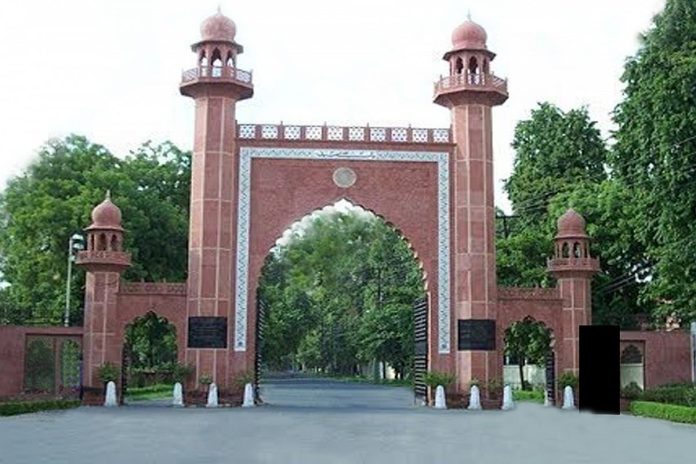
By Mohd Naushad Khan
Nov. 8, 2023
During Aligarh Municipal Corporation meeting on Monday, a resolution to rename Aligarh as Harigarh was passed unanimously. This proposal will now be forwarded to the state government for approval. Aligarh has long demanded a name change, according to mayor Prashant Singhal.
If it does happen, Aligarh will be known as Harigarh, joining other cities in Uttar Pradesh where the government has changed names: Faizabad became Ayodhya, Mughal Sarai became Pandit Deen Dayal Upadhyay Nagar, and Allahabad became Prayagraj. Many believe that despite change of name, Aligarh will remain Aligarh in the hearts and minds of people.
An attempt to rename Aligarh as Harigarh was made in 2021 by the Aligarh Zila Panchayat. According to VHP leaders, the original name of the location as mentioned in Hindu mythology was Harigarh.
On the historical importance of Aligarh, Syed Ali Nadeem Rezavi, Professor of History, AMU and Secretary of Indian History Congress said, “Aligarh was the name of the garrison of the Mughals, situated at some distance from Kol. It was called so after its governor, Najaf Ali Khan. Garh means a fortress or garrison. It was the period when the Mughal king was under the virtual control of the Marathas. When the fortress passed into the direct control of the Marathas under Mahadji Scindia, the fortress continued to be known by that name. On behalf of the Marathas, the fortress was placed under the command of French troops (commanded by General Perron).”
Prof Rezavi added, “Later the French troops of the Marathas lost the Aligarh Fort to the British forces. First the area around the fort (in the hands of English) came to be known as Aligarh and then subsequently the entire city was popularised as Aligarh. The name Aligarh is thus only a few decades older to the MAO College, established in this city by Sir Syed.”
“What is now Sulaiman Hall was the residence of General Perron. Beyond it was the Company Bagh. The area where the main buildings of MAO College (now Sir Syed Hall, North and South) are located, were the British Barracks. The fort itself was also purchased by Sir Syed and is now University property. Thus, this entire area – the area beyond the railway line to village Dodhpur (now an area) was the original area which was nomenclated as Aligarh. The name Aligarh soon was officially given to the entire district,” he said.
“The name Aligarh became internationally known only due to its association with the institution founded by Sir Syed, which in 1920 became a central University by an Act of Parliament. AMU and BHU are the only two universities which find mention in our Constitution: an honour which some other universities older than them, have been deprived of. Today the world knows this city as a city of learning and a distinct culture: the Aligarh tahzeeb!,” said the secretary of the Indian History Congress.
On the impact of renaming Aligarh, Prof Rezavi said, “What happens if the name of the city is changed from Aligarh to Harigarh? In my humble opinion nothing except perhaps exposing the communal and divisive agenda of Modi and the party in power! Till date, the core city area is known as Tahsil Kol! The name of Aligarh today is associated with the University, which will continue to be known as Aligarh Muslim University. It is in popular perception the City of Knowledge, Shahr e Ilm: one of the gates of the original MAO college is known as Bab ul Ilm: The Gate of Knowledge, a title which as per a saying of the Prophet was the title of Imām Ali. To the world this association of the city to Knowledge, to Sir Syed and his Mission, and in extension, to Caliph and Imām Ali, will continue. From Aligarh it will become Harigarh, where Aligarh Muslim University is situated! No one will be able to take out Aligarh out of the city.”
“Will it make a difference? No! The Aligarh Mission, the Aligarh tahzeeb are no slave to the mere name: it’s a patent in itself which will never expire,” said prof Rezavi.
Dr. Maskoor Usmani, former President of Aligarh Muslim University said, “Aligarh holds historic importance in the national struggle for Independence. It has been noted in great libraries and literatures of the world. Great scholar like David Lelyveld book, Aligarh’s First Generation marks the importance of this city. The city is a land of AMU’s founder Sir Syed Ahmad Khan.”
“For the right-wing fringe groups in the country, it was never about the importance of the city and its rich history. The government is insecure about its survival and for that sake it’s doing all sorts of crap to subdue the issues of national and local importance. As the elections are coming near, the right-wing coterie is hellbent on pushing their exclusive cultural ideology which is unacceptable,” added the former AMUSU President.




